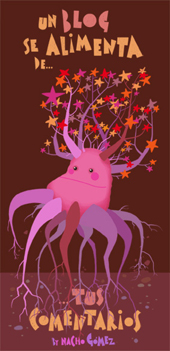"El principal motivo de la prolongada popularidad de Flashman es simplemente el hecho de que el señor Fraser escribe soberbiamente".
-Flashman -me dijo-, sir Alexander me dice que se lleva usted de maravilla con los afganos. Pensando en las mujeres, convine en que, efectivamente, era cierto.
-Bueno, pues, ¿habla usted también su endiablado dialecto?
-Aceptablemente bien, señor.
-Eso significa que es usted mucho mas previsor que la mayoría de nosotros. No debería hacerlo, pero, siguiendo la sugerencia de sir Alexander...-aquí Burnes me dirigió una sonrisa que, a mi modo de ver, no presagiaba nada bueno- ...y puesto que es usted el hijo de un antiguo amigo mío, voy a encomendarlo una tarea. Una tarea que contribuirá a favorecer su ascenso si la cumple usted como es debido, ¿comprende? -me miró un instante y después añadió, dirigiéndose a Burnes- ¡Maldita sea, Sandy, es tremendamente joven! [...] Va usted a ser nuestro correo, como hacen los hombres del señor Rowland Hill en Inglaterra. Llevará nuestros mensajes de buena voluntad a Sher Afzul, se los entregará, le dirá que todo marcha estupendamente bien, se mostrará amable con ese viejo demonio que, por cierto, está medio loco, y le tranquilizará en caso de que todavía esté preocupado y cosas por el estilo.
[...] Parte de mis reflexiones debieron reflejarse en mi rostro, pues Cotton me preguntó con la cara muy seria qué ocurría. ¿Acaso no quería ir?
-Por supuesto que sí, señor -contesté, mintiendo descaradamente-. Pero... bueno, es que todavía estoy muy verde, un oficial más experto...
-No se preocupe -dijo Burnes, sonriendo.
En este libro, uno de los muchos de la saga de sir Harry Flashman, el antihéroe se convierte en un involuntario agente secreto en la Afganistán de la época Victoriana al servicio del Imperio Británico, culminando en uno de los más deshonrosos episodios en la historia militar reciente: la retirada de Kabul.
 Harry Flashman, que se autodefine como "jueguista, mentiroso, hipócrita y cobarde" es uno de los soldados más laureados de la historia del Imperio Británico. Los libros de la saga de Flashman nos ayudan a comprender el porqué y son maravillosamente entretenidos. En Afganistán, Madagascar, Singapur o los esclavistas Estados Unidos, Flashman siempre consigue que se le encasquete un marrón del que sale aún con más fama que antes, en parte gracias a sus únicas tres virtudes: el don de lenguas, la equitación y la fornicación. Leer a Flashman es, más que recrearse en una novela de aventuras, conocer al antihéroe que cada uno de nosotros lleva por dentro, para envidiarle, reírnos de su penosa situación y envidiarle de nuevo. Leed un libro de este caballero y no tardaréis en buscar otro mientras pensáis :"Yo también querría ser como sir Harry Flashman".
Harry Flashman, que se autodefine como "jueguista, mentiroso, hipócrita y cobarde" es uno de los soldados más laureados de la historia del Imperio Británico. Los libros de la saga de Flashman nos ayudan a comprender el porqué y son maravillosamente entretenidos. En Afganistán, Madagascar, Singapur o los esclavistas Estados Unidos, Flashman siempre consigue que se le encasquete un marrón del que sale aún con más fama que antes, en parte gracias a sus únicas tres virtudes: el don de lenguas, la equitación y la fornicación. Leer a Flashman es, más que recrearse en una novela de aventuras, conocer al antihéroe que cada uno de nosotros lleva por dentro, para envidiarle, reírnos de su penosa situación y envidiarle de nuevo. Leed un libro de este caballero y no tardaréis en buscar otro mientras pensáis :"Yo también querría ser como sir Harry Flashman".




